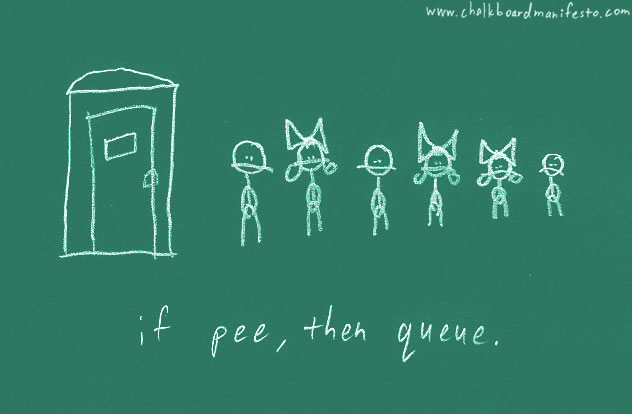
Notice the phrase 'If it's raining, then the road became wet'. That phrase is a compound sentence, because it is formed by two statements, namely 'Now the rain' and 'roads become wet'. Note that the second sentence is linked by connective sentence 'If - Then -'. Any sentence of the form 'If p then q' is called a conditional (or implications), p is called the conditional hypothesis, q is called the conclusion of a conditional. Conditional 'if p then q', (consider if the same as if), symbolized by a p
EXAMPLE
Using a symbolic representation
p: I'm healthy
q: I eat fast food.
r: I exercise regularly.
Express sentence under the representation simbolils.
Express sentence under the representation simbolils.
a. I'm healthy when exercising regularly.
b. If I only eat fast food and do not exercise regularly, I was not feeling well.
COMPLETION
COMPLETION
a. I'm healthy when exercising regularly is the conditional sentence "if - then - 'and can be represented again become
'if you exercise regularly, I am healthy'
then, this compound sentence is represented symbolically by r 
b. If I only eat fast food and not exercising regularly, I was not feeling well. This sentence is conditional 'if - then -', but involving konsungsi and two negation in it. The symbolic representations of the above sentence is (q ^ ~ p) r.
r.
EXAMPLE
b. If I only eat fast food and not exercising regularly, I was not feeling well. This sentence is conditional 'if - then -', but involving konsungsi and two negation in it. The symbolic representations of the above sentence is (q ^ ~ p)
EXAMPLE
Express sentence 'All men must die'
COMPLETION
COMPLETION
sentence 'All human must die' can be denoted again if he is human, would die. Then, we define two symbolic sentence:
p: Something is a human
q: Human must die
sentence can be expressed p -> q. In general, the phrase 'all p then q' can be expressed p -> q
We have discussed how the compound statements are formed, the next we can give the truth value analysis.
We have discussed how the compound statements are formed, the next we can give the truth value analysis.
| compound statement | Symbols | Readings |
| Negation | ~ | notes |
| Conjunctions | ^ | and |
| disjunction | v | or |
| conditional / implications | | if - then - |
No comments:
Post a Comment